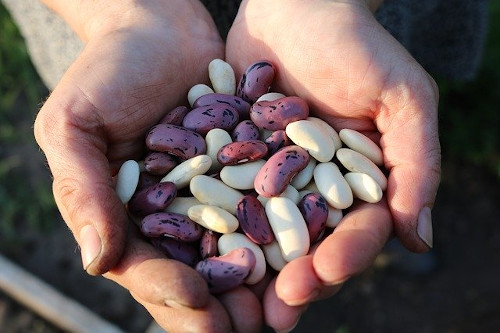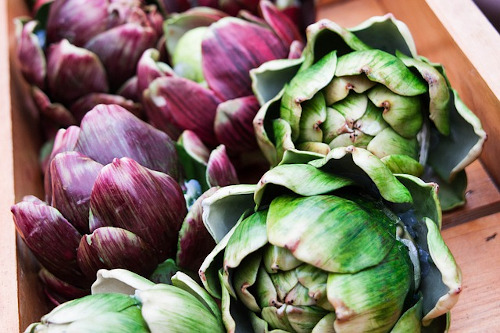Contents

Are you looking for the right foods to eat with gallstones? You’ve come to the right place. However, before we jump into the best foods for this condition, let’s learn a little more about it. Gallstones or cholelithiasis is the presence of calculi or stones in the gallbladder. They are typically formed primarily of cholesterol, which is one of the components of bile and is characterized by its semi-insolubility and its tendency to crystalize and encourage the formation of calculi or stones.
The foods described in this article and the gallbladder diet food list will help you avoid the formation of gallstones, as well as to prevent complications such as gallbladder attack and cholecystitis, or gallbladder inflammation, once they form. Some epidemiological studies show that alcohol may reduce the risk of cholelithiasis. However, the possible benefits are not worth the severe potential harm to the liver and other organs.
What Are the Best Foods to Eat With Gallstones?
FRUIT: Fruit contains virtually no fat, so its consumption allows the gallbladder to rest. According to statistics, 25% of omnivorous adult women have gallstones. On the other hand, only 12% of vegetarians do. Therefore, you can put fruits on the list of foods to eat with gallstones.
LEGUMES: Although many believe that regular legume consumption fosters gallstone formation, some studies demonstrate the opposite. Their high fiber content and low level of fat support the epidemiological findings that the greater the legume consumption, the lower the risk of getting gallstones.

ARTICHOKE: A time after eating artichokes, the bile becomes more fluid and less dense, which keeps it from precipitating in the form of calculi. Additionally, the artichoke’s cynarin aids in emptying the gallbladder, thus reducing the risk of the formation of sediments and calculi. Artichokes can be one of the first solid foods eaten after a gallbladder attack, which makes it one of the best foods to eat with gallstones.
APPLE: According to animal studies, apples make the bile more fluid and reduces its tendency to hasten the formation of calculi. The apple holds its own on this list of foods to eat with gallstones.
RADISH: Radishes increase bile production, which aids gallbladder function thanks to the sulfurated essence they contain. All of this works together to lower the risk of gallstones.
SOY BEVERAGE OR SOYMILK: When one replaces cow’s milk and dairy products with soy products such as soymilk and tofu, the risk of gallstone formation is reduced. Soy proteins lessen the tendency to form calculi.
LECITHIN: Whether taken as a supplement or in foods such as soy and other legumes and nuts, which contain it naturally, lecithin improves the solubility of cholesterol in the bile, which prevents its formation into calculi.
FIBER: Studies show that adequate fiber intake (20-30 g daily) serves to protect somewhat from the formation of gallstones. You can find fiber primarily in whole grains, fruit, and vegetables. The more fiber consumed, the lower the risk of cholelithiasis.

VITAMIN C: A study at the University of San Francisco found that women who took in abundant amounts of vitamin C, including as pharmaceutical supplements, presented a 26% lower risk of gallstone formation. Citrus are not the only fruits rich in vitamin C. Other fruits such as acerola, guava, currant, and kiwi are even richer in this vitamin.
Foods Not to Eat with Gallstones
TOTAL FAT: Any type of fats provokes contractions of the gallbladder as a hormonal reflex. This process can encourage or aggravate a gallbladder attack.
DAIRY PRODUCTS: Casein, the most abundant protein in milk, can promote the formation of gallstones. Whole milk or high-fat dairy products such as cream and butter can provoke gallbladder contractions that produce abdominal discomfort in those with cholelithiasis.
SUGARS: Overuse of sugars nurtures the formation of gallstones. Sweets, pastries, and other products that contain sugar and refined flour, in addition to fat, are particularly detrimental in the case of cholelithiasis.
PROTEINS: Excess proteins, particularly those of animal origin, foster the formation of gallstones.
Information About Gallstones
DISCLAIMER: All content on this website is presented solely for educational and informational objectives. You should not rely on the information provided as a replacement for advice, diagnosis, or treatment from a qualified medical expert. If you are pregnant, nursing, or have any preexisting medical concerns, you should talk to your doctor before using any herbal or natural medicines.
REFERENCES
- George D. Pamplona-Roger, M.D. “Encyclopedia of Foods and Their Healing Power.” George D. Pamplona-Roger, M.D. Encyclopedia of Foods and Their Healing Power. Trans. Annette Melgosa. Vol. 2. Chai Wan: Editorial Safeliz, 2005. 174. Print. [foods to eat with gallstones]
- HIDA scan: https://www.mayoclinic.org/tests-procedures/hida-scan/multimedia/hida-scan/img-20007932
- Bile sludge and microlithiasis: https://www.mayoclinic.org/diseases-conditions/gallstones/symptoms-causes/syc-20354214
